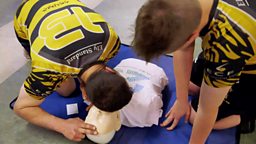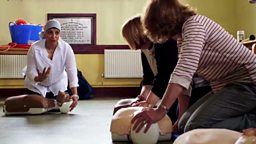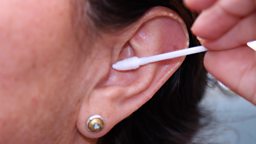How to spot the signs of a stroke before it happens
Every three minutes and twenty seven seconds, someone in the UK has a stroke. However, up to 80% of strokes could be prevented. There are clues that you may be about to suffer one, and prompt treatment can help you avoid it happening.

explains what these ‘Red Flag’ signs are.
Your likelihood of experiencing a stroke doubles every decade after you reach 55. So as you get older you should be particularly aware of these.
Not just a ‘funny turn’
Many people experience 'funny turns' and simply dismiss them, but they could be an important warning sign: a TIA or transient ischaemic attack. These are often known as a mini stroke or ‘warning stroke’, but people aren't as aware of them as they should be.
The symptoms are the same as a major stroke but they can be over in minutes. Remember the symptoms of both a stroke and a TIA by the word Fast:
F: Has their face fallen on one side? Can they smile?
A: Can they raise both arms and keep them there?
S: Is their speech slurred?
T: Time to call 999 if you see any single one of these signs.
Remember, even if the symptoms pass quickly they could be a vital warning sign. Each year in the UK 46,000 people have a TIA and 1 in 12 then go on to have a major stroke.
AF: Atrial Fibrillation
One other important ‘red flag’ is Atrial Fibrillation. It is the most common kind of irregular heartbeat, and can increase your danger of stroke by up to 5 times. If you get to know your pulse, you can spot AF, and receive medication as well as downgrading your risk.
You should ideally check your pulse every day, preferably at the same time. Place your fingers on the inside of your wrist, and count the number of beats you feel for 30 seconds. Then, multiply this by two in order to get the total beats per minute. A ‘normal pulse’ will be between 60 and 100 beats per minute, but if you have AF it can go up to 140 times a minute. Also be aware of irregularities in your heart beat. If you are concerned, speak to your doctor.
Get to know your pulse, and don’t dismiss any symptoms as a ‘funny turn’ without consulting a health professional.





















































